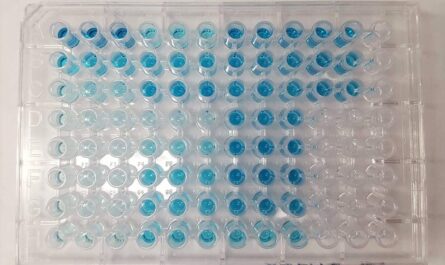What is U.S. Colorectal Cancer Screening Market?
Colorectal cancer, also known as bowel cancer, colon cancer, or rectal cancer, refers to cancer that develops in the colon or rectum. The colon and rectum are parts of the large intestine, which is the lower part of the digestive system in the body. Cancer occurs when abnormal cells begin to grow and divide uncontrollably in the colon or rectum and spread to other parts of the body if not caught early.
Colorectal Cancer is the third most commonly diagnosed cancer and the second leading cause of cancer-related deaths in the United States. In 2022, an estimated 149,500 new cases of colorectal cancer will be diagnosed in the U.S. and approximately 52,980 people will die from the disease. While colorectal cancer risk increases with age, it can occur at any age. On average, colorectal cancer is diagnosed at around 66 years of age but some people develop it before the age of 50.
Risk Factors and Signs of Colorectal Cancer
There are certain factors that can increase a person’s risk of developing colorectal cancer, including:
– Age – Most cases are diagnosed in people aged 50 or older. The risk increases significantly after age 50.
– Personal or family history of colorectal cancer or polyps – Having a parent, sibling, or child who has had colorectal cancer or adenomatous polyps doubles or triples your risk.
– Inflammatory bowel disease – People with conditions like Crohn’s disease or ulcerative colitis face a higher risk.
– Race/ethnicity – Black people are more likely to develop and die from colorectal cancer compared to other racial groups in the U.S.
– Diet and lifestyle – A diet high in red or processed meat and low in fruits and vegetables raises the risk, as does obesity, smoking, and heavy alcohol use.
Some potential warning signs of colorectal cancer to look out for include:
– Blood in or on the stool (stools may appear darker).
– Rectal bleeding.
– Abdominal discomfort (cramping, bloating).
– Changes in bowel habits (diarrhea, constipation).
– Feeling the need to pass stool when the bowels are empty.
– Unexplained weight loss.
– Fatigue.
– Iron deficiency anemia.
The Importance Of U.S. Colorectal Cancer Screening Market And Early Detection
While Colorectal Cancer risk increases with age, the good news is that this type of cancer is highly preventable and often curable, especially if detected early before it has spread to other organs. This is where screening comes in.
The key to preventing deaths from colorectal cancer is through regular screening tests. Screening can find precancerous polyps (abnormal growths) so they can be removed before turning cancerous. Screening can also detect colorectal cancer early when the disease is more treatable.
According to the US Preventive Services Task Force (USPSTF), routine screening should begin at age 45 for adults at average risk. Those at increased or high risk may need to begin screening before age 45. The American Cancer Society recommends that adults at average risk begin screening at age 45 using one of the following screening tests:
– Guaiac-based fecal occult blood test (gFOBT) or fecal immunochemical test (FIT) annually.
– Flexible sigmoidoscopy every 5 years combined with FIT every 3 years.
– Colonoscopy every 10 years.
– CT colonography (virtual colonoscopy) every 5 years.
– FIT-DNA test every 3 years.
The type of screening test used depends on personal risk factors, screening history, and shared decision making between patient and provider. Colonoscopy allows for detection and removal of precancerous polyps but it requires more intensive bowel preparation and has risks from the procedure itself. Noninvasive screening options like FIT and CT colonography are also effective screening options for many adults.
US Screening Rates and Identifying Barriers
While screening tests have proven effective for early detection and prevention, a significant portion of the US population is not up-to-date on recommended colorectal cancer screening guidelines. The CDC reports that in 2019, only 67.9% of adults between the ages of 50-75 reported being up-to-date with colorectal cancer screening recommendations. Screening rates vary by state and demographic groups.
There are several known barriers that contribute to low screening rates among the at-risk population in the U.S.:
– Lack of awareness of screening recommendations and importance of early detection. Not understanding personal risks impacts screening behavior.
– Difficulty accessing health insurance and healthcare in general. Cost of screening tests poses a barrier for uninsured individuals.
– Fear, embarrassment, and discomfort about screening tests especially those involving bowel preparation or colonoscopy procedure. Knowledge gaps exist.
– Cultural beliefs and language barriers in non-English speaking groups. Navigation of complex healthcare system poses extra challenges.
– Provider shortages in rural or underserved areas impact ability to have timely discussions and appointments for screening.
– Misconceptions that symptoms are required for screening or that certain groups have low risk so screening is unnecessary.
Closing gaps in screening rates will require multifaceted interventions at the provider, health system, and community levels. This includes increasing awareness through education programs, reducing structural barriers like access and cost issues, improving cultural competence of providers, and addressing concerns about screening tests themselves. Achieving high screening rates across all populations will help reduce disease burden from colorectal cancer.
Importance Of Continued Screening After Age 75
While screening guidelines suggest most average-risk adults begin screening at age 45 to 75, debate continues regarding the optimal stopping age for screening. Some argue there is lack of evidence that screening is beneficial after age 75 given declining life expectancy overall. However, a 2021 study published in The Lancet Gastroenterology & Hepatology found continuing screening beyond age 75 does prevent colorectal cancer deaths.
The study analyzed data from 2.6 million people in England who were invited to screening between 2006-2018. Adults who continued to participate in screening after age 75 saw a 30% reduction in colorectal cancer mortality compared to those who stopped regular screening. Given screening’s potential to detect cancers early that may otherwise be more aggressive in older age groups, continuing screening on an individual basis beyond age 75 could provide health benefits and prevent needless suffering for some. Of course, decisions also factor in individual health status, life expectancy, and patient preferences. But screening should not simply end at a certain age if the person remains healthy enough to benefit from screening’s outcomes.
In summary, regular colorectal cancer screening starting at age 45 can detect precancerous polyps or colorectal cancer early when treatment works best. While screening rates are improving, millions remain unscreened in the US each year leading to preventable cases and deaths. Addressing awareness gaps, improving access, and reducing barriers across all communities will help the nation achieve the Healthy People 2030 goal of getting 80% of adults screened for colorectal cancer by 2030. Contin
*Note:
1. Source: Coherent Market Insights, Public sources, Desk research
2. We have leveraged AI tools to mine information and compile it


